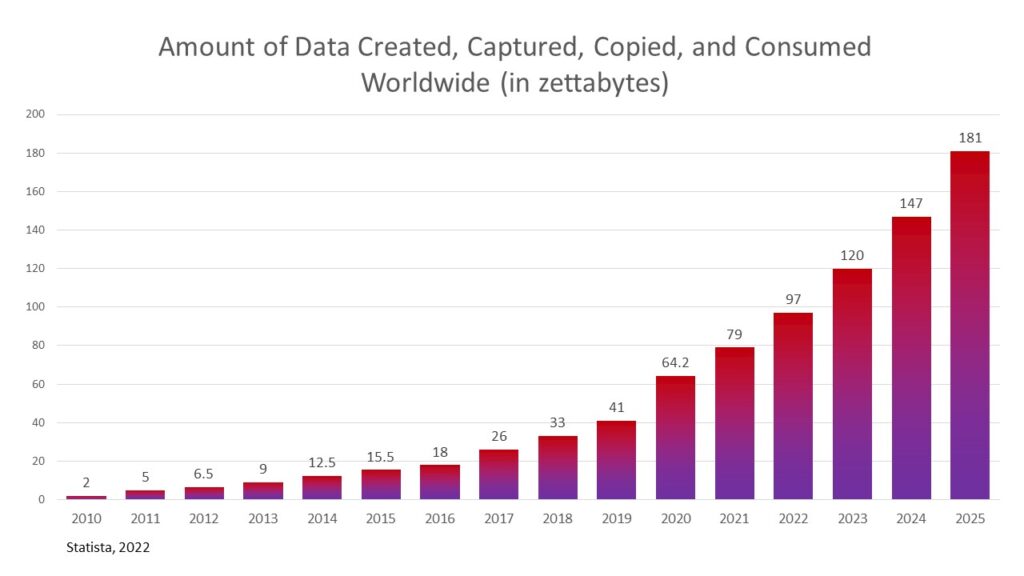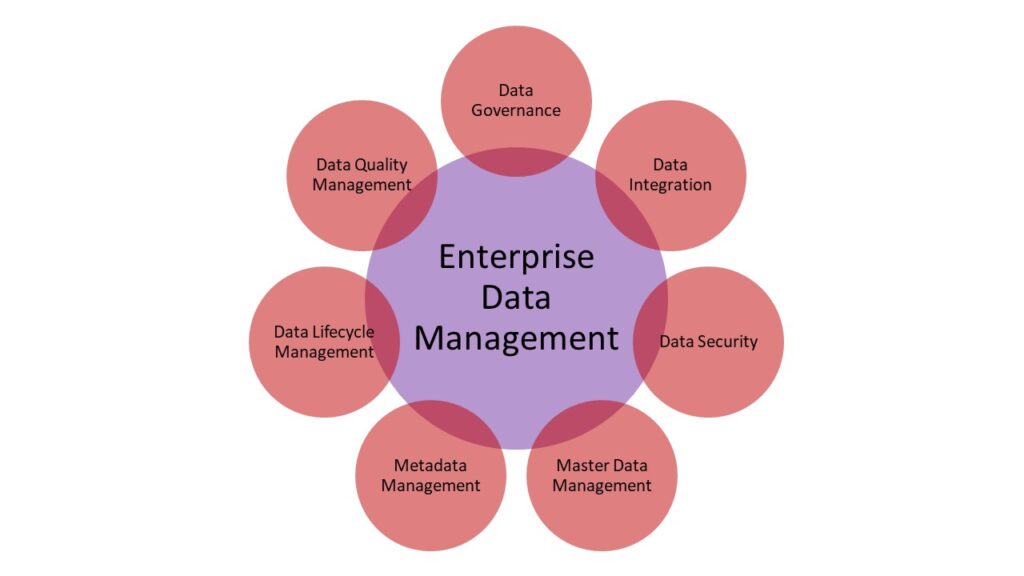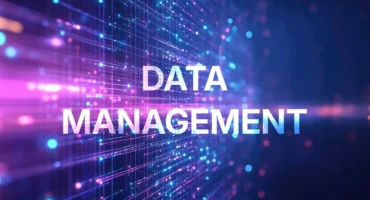
Seth Rao
CEO at FirstEigen
What is Enterprise Data Management? A Complete Guide to Services, Solutions, and Best Practices
What is enterprise data management—and how does data management impact your organization?
Data management is essential to any enterprise, ensuring that all the organization’s data is reliable, accessible, and secure. Proper data management helps enterprises make more informed decisions and better control their daily operations. It’s how successful companies turn raw data into useful analysis.
How can your organization improve data management? It’s all here in this definitive guide to enterprise data management. You’ll learn what enterprise data management is and the best practices required to ensure your company consistently operates with high-quality data.
Quick Takeaways
- Data management transforms raw data into actionable insights.
- The seven key aspects of enterprise data management are data governance, data integration, data security, master data management, metadata management, data lifecycle management, and data quality management.
- Enterprise data management best practices include assigning appropriate leadership, educating employees, prioritizing data governance at the senior management level, properly securing all data, eliminating data silos, and ensuring high data quality.
What is Data Management?
Big data rules the enterprise. By some accounts, we create and use over 2.5 quintillion bytes of data every day. To put it in perspective, a quintillion equals 1 followed by 18 zeros, or a billion billion.

All this data carries significant value. With the proper data, companies can better run their daily operations, get insights into customer behavior and buying preferences, and make better long-term strategic decisions. But getting maximum value from this data requires robust data management.
Data management in an enterprise involves identifying, collecting, storing, organizing, and using all available data. It ensures that data is accurate, reliable, and accessible, transforming raw data into actionable insights. It helps the organization make sense of the data it collects.
The importance of enterprise data management is evident in its growing market. According to the Global Opportunity Analysis and Industry Forecast report, enterprises worldwide spent $79.7 billion on data management tools and services in 2021. That number is expected to almost triple to $224.5 billion by 2031.
Why is Data Management Important?
Data management is important because data is important. Organizations of all sizes require timely access to high-quality data to make informed operational and strategic decisions. According to a Capital One survey, 82% of data management decision-makers view data governance as a top challenge.
Lack of effective data management can prove disastrous to any organization, resulting in poor decision-making and operational inefficiencies. It can also lead to a compromised security system, making data susceptible to breaches, ransomware attacks, and other cyberattacks.
When an organization prioritizes data management, several benefits accrue, including:
- Improved access to important information
- Competitive edge over companies with lesser data management
- Improved productivity
- Lower costs
- Reduced risk of data loss
- Improved data security
- More targeted marketing
- Improved customer service and satisfaction
- Enhanced regulatory compliance
- More robust data analysis
- More efficient day-to-day operations
- Better-informed decisions
What Are the Key Aspects of Enterprise Data Management?
The approach to managing data in large enterprises mirrors that of smaller companies and individuals but on a larger scale. There are seven key aspects of enterprise data management that, combined, ensure timely access to reliably accurate data.

Data Governance
Data governance details the policies, processes, and procedures an enterprise employs to manage its data. This is necessary to protect data quality, integrity, and security, as well as comply with all governmental and industry regulations.
Data Integration
Data integration involves the consolidation of data from a variety of internal and external sources into a single data repository. This is necessary to provide enterprise-wide access to the company’s data and enable a unified view of that data.
Data Security
Data security consists of various measures, both technological and strategic, used to protect an enterprise’s data against unauthorized access, cyberattacks, and corruption.
Master Data Management
Master data management (MDM) is an approach used to manage and reconcile data from multiple sources and provide a single source of truth across the enterprise. MDM is necessary to eliminate data silos, improve data quality, and streamline data access.
Metadata Management
Metadata is data that describes other data and gives context to data contents. Metadata management is necessary to ensure the timely and accurate creation, storage, and access to important metadata across the enterprise.
Data Lifecycle Management
Data lifecycle management (DLM) is the management of specific data across the entire timeline, from inception to retirement. DLM is necessary to ensure data integrity and security.
Data Quality Management
Data quality management (DQM) ensures that data ingested, created, and used by the enterprise is of the highest possible quality. DQM verifies the accuracy, completeness, consistency, timeliness, uniqueness, and validity of data.
Who Manages Data in the Enterprise?
Several positions and departments within the organization are responsible for managing enterprise data. This typically includes:
- Data managers
- Database administrators
- Data analysts
- IT administrators
These individuals or departments may oversee some or all of the data management process, working with other assigned individuals to ensure efficient and effective data ingestion, storage, security, and analysis.
Best Practices for Enterprise Data Management
Effective enterprise data management requires adherence to a set of best practices. To ensure your company’s data is accurate, reliable, and secure, follow these best practices:
- Assign appropriate leadership, such as a Chief Technical Officer (CTO) or Chief Data Officer (CDO), to oversee all data management activities.
- Educate all employees on the importance of data management and inform them of all data governance guidelines.
- Make sure senior management prioritizes data governance and management.
- Protect all company data from breaches or attacks using necessary means.
- Provide easy access to key data for all authorized employees.
- Eliminate departmental or location-based data silos.
- Use all available tools and methods to ensure the highest data quality and reliability.
Ensure High Data Quality with FirstEigen’s DataBuck
Data quality management is one of the key aspects of enterprise data management. To improve your organization’s data quality, turn to DataBuck from FirstEigen. DataBuck uses artificial intelligence and machine learning technologies to automate more than 70% of the data monitoring process. It improves data quality by identifying, isolating, and fixing inaccurate, incomplete, duplicate, and inconsistent data, making enterprise data management easier and more reliable.
Contact FirstEigen today to learn more about improving data quality in enterprise data management.
Check out these articles on Data Trustability, Observability & Data Quality Management-
FAQ
Enterprise data management solutions help businesses ensure data accuracy, improve decision-making, and maintain compliance with regulations. By centralizing and organizing data, companies can easily access reliable information when needed, improving overall operational efficiency and security.
Enterprise data management (EDM) services support data governance by ensuring that data is properly cataloged, stored, and accessible under clear policies. EDM helps enforce rules and standards that ensure the data remains accurate, secure, and compliant with industry regulations.
Enterprise data management focuses on handling and organizing data infrastructure, while data governance ensures policies, standards, and procedures are followed. EDM deals with the physical and technical aspects, whereas governance focuses on regulatory and compliance aspects.
Challenges include data silos, poor data quality, and integration issues. These can be addressed by implementing structured data management services that ensure data is properly integrated across departments, maintaining consistent standards and improving data quality through automated checks.
By providing clean, organized, and accessible data, enterprise data management solutions enable better analytics and business intelligence. High-quality data improves the accuracy of reports and insights, leading to more informed business decisions.
Key tools include data integration platforms, data quality monitoring systems, and governance tools. Technologies like Databuck provide enterprise data management services by automating data quality checks and supporting real-time monitoring.
Databuck helps with enterprise data management by offering automated data quality monitoring, ensuring that data remains accurate and reliable. It integrates with existing solutions to improve data governance and maintain data quality across the organization.
Discover How Fortune 500 Companies Use DataBuck to Cut Data Validation Costs by 50%
Recent Posts
Get Started!



